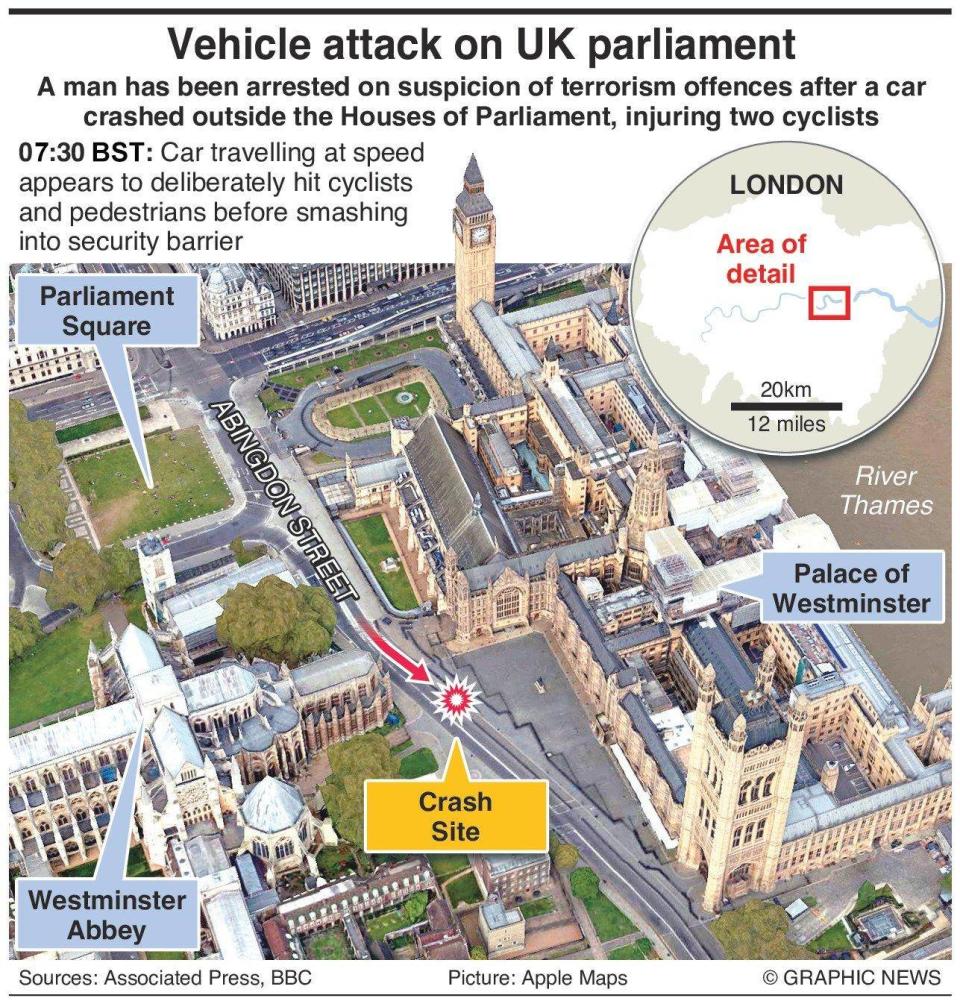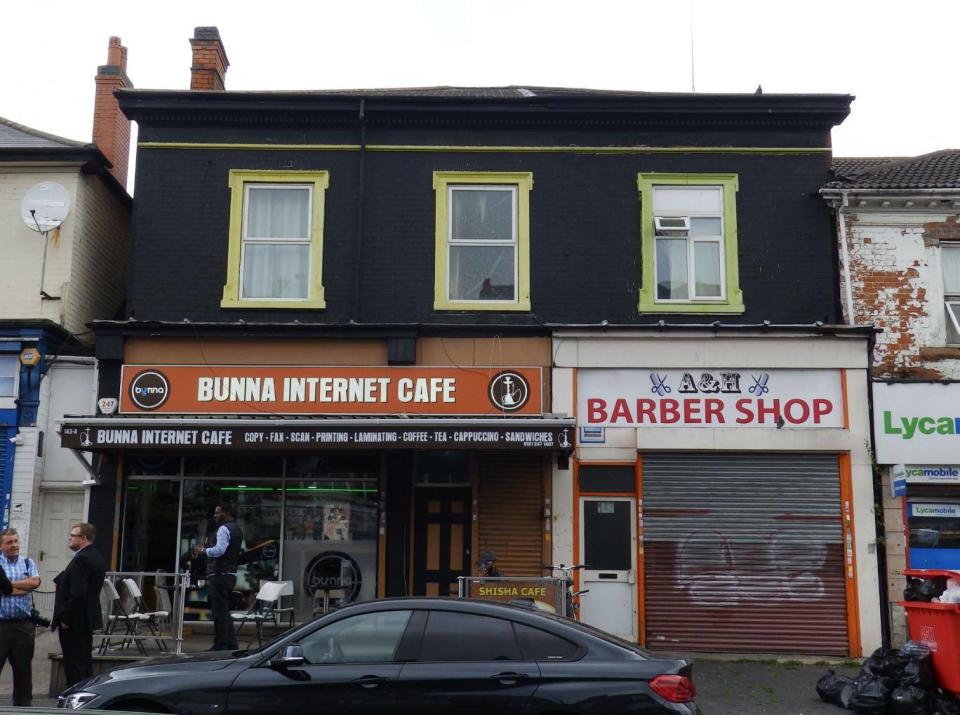Salih Khater: Police granted extra time to question Westminster terror suspect as friends insist crash was accident
Police have been granted extra time to question a man accused of launching a terror attack in Westminster, after friends claimed the crash may have been an accident.
Salih Khater, a British citizen who came to the UK as a refugee from Sudan, was arrested on suspicion of an act of terrorism and attempted murder after the incident on Tuesday.
The 29-year-old remains in custody after Westminster Magistrates’ Court granted the Metropolitan Police a warrant to detain him until Monday, when he must be charged or released.
Assistant Commissioner Neil Basu, the head of UK counterterror policing, said the main priority for investigators was establishing a potential motive for the alleged attack.
They are treating the incident as an act of terrorism “given that it appears to have been a deliberate act, the method used and the iconic location”.
The suspect was the only person inside the Ford Fiesta as it ploughed through cyclists, injuring three people, crossed a central reservation and smashed into barriers outside the Houses of Parliament.
Police had to leap out of the vehicle’s path and armed officers surrounded it in seconds, launching a large-scale security operation in Westminster.
No other weapons were found in the car, which has been removed from the scene of the crash and searched.
Police have raided four properties linked to Mr Khater, including his Birmingham flat, another property in the city and two of his former homes in Birmingham and Nottingham.
The crash came during parliament’s summer recess and ahead of the daily rush of tourists to Westminster, leaving the area relatively deserted.
Investigators said the silver Ford Fiesta had been driven from Birmingham to London late on Monday night and drove around the city centre for almost eight hours before the crash.
Friends of Mr Khater claimed he had driven to London to get a visa from the Sudanese embassy so he could visit relatives in the country in the wake of his father’s dead.
One man, who did not want to be named, told The Independent he was a “normal guy” who was not radicalised.
“He's a very good man, a very friendly man, everybody knows him,” he added.
“His father died six or seven months ago and that's why he was stressed.
“In my opinion he was going the wrong way and he didn't know what he was doing and when he saw the police he got scared - he's lucky they didn't shoot him.”
Sudanese community member Ali Mohamed said he understood Mr Khater had an appointment at the Sudanese embassy on Tuesday, which is less than a mile from where the crash took place.
“He was trying to apply for a visa,” he added. “We really don't know why he got into that incident.”

Mr Khater's brother, Abdullah Khater, told the BBC he was a “normal person” with no fanatical ideas or links to extremist groups.
His family are “a state of shock” over the incident, he added, saying he had been planning a trip to Sudan.
Nassar Mahmood, a trustee at Birmingham Central Mosque, said Mr Khater did not worship there and enquiries suggested he was not a “fervent” Muslim.
“He had his paperwork with him to go to the Sudanese embassy, and we know that the office opens very early in the morning so probably rather than going very early he went overnight,” he added.
“He was very humble in terms of his finances and may not have wanted to pay for a hotel.”
Mr Mahmood said the terror suspect used his own car and claimed he was “not generally the kind of person we see commit these sort of crimes,” adding: “We've been cautioning people against apportioning guilt before the police have concluded their investigation.”
Armed police were called to two other mosques in Birmingham on Wednesday night after windows were smashed during evening prayers.
Police said a “heavy-duty catapult” was used to target the Masjid Qamarul Islam mosque in Small Heath, followed by the nearby Al-Hijrah mosque around 20 minutes later.
Mr Khater, whose social media indicated a liking for Celine Dion and Rihanna, is believed to have arrived in the UK in 2010 as an asylum seeker. He was granted refugee status and later applied successfully for British citizenship.

He studied English at City College from 2010 to 2011, then a diploma in science at Birmingham's South and City College 2014 from 2017, and started an accountancy course at Coventry University.
“Salih Khater studied accountancy at Coventry University between September 2017 and May 2018, a spokesperson said. “He failed the first year of his course, therefore his enrolment was terminated.”
He described himself as a shop manager on his Facebook page, where the “about” section reads: “In past I'm great but now I say I don't no [sic]”.
Mr Khater said he studied at Sudan University of Science and Technology and went to school in Wad Madani, a city south-east of Khartoum.
The car struck metres away from where Khalid Masood was shot dead after murdering five people in the Westminster attack in March 2017.
Since that atrocity, Westminster has been the planned location of four disrupted plots, making it currently the biggest since terror target in Britain.
Isis has issued advice to its followers on how to carry out atrocities using vehicles, knives and other easily obtained items, which have made attack plans faster and harder to spot for authorities.
Authorities 13 Islamist and four far-right plots have been foiled since the first Westminster attack in March 2017 – an average of one a month.
A total of 676 terrorism investigations by MI5 and counterterrorism police were underway by the end of June this year, up from around 500 just four months before.
The UK’s terror threat level is currently set at severe, meaning further attacks are considered “highly likely”.

